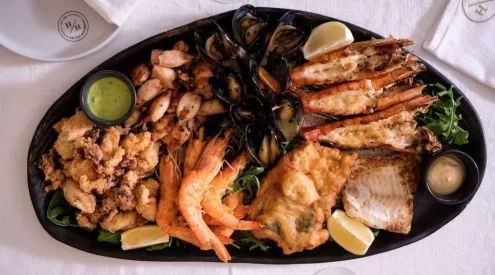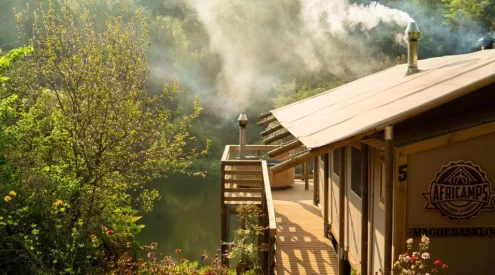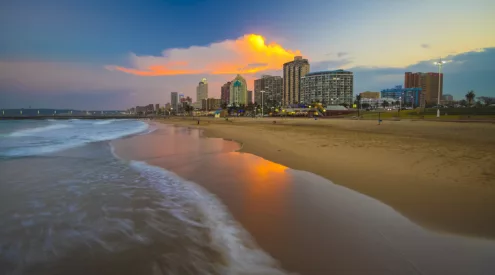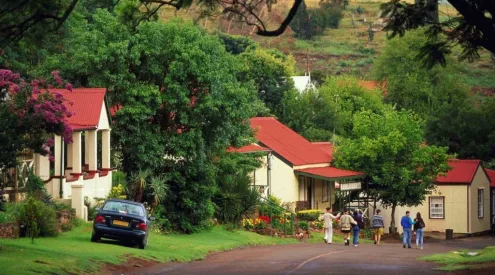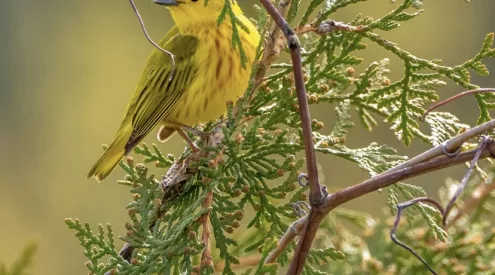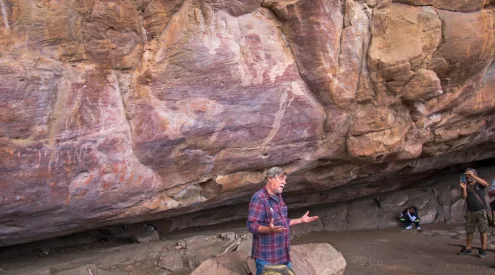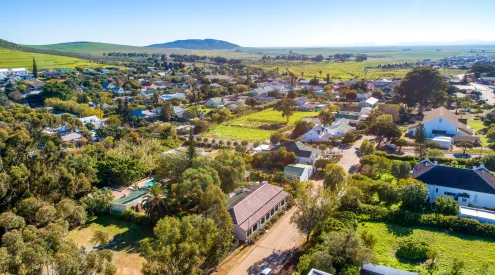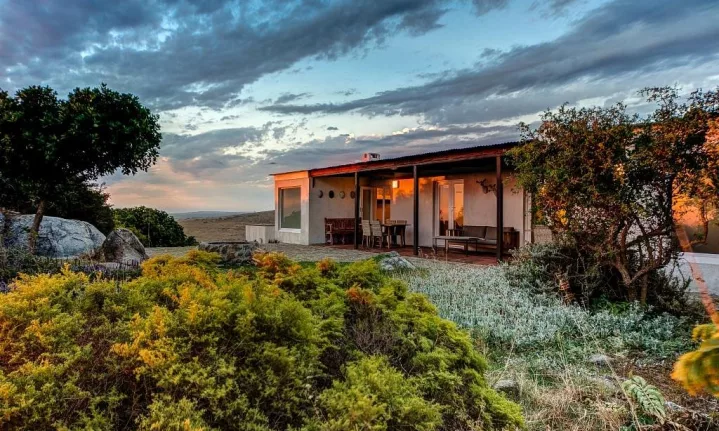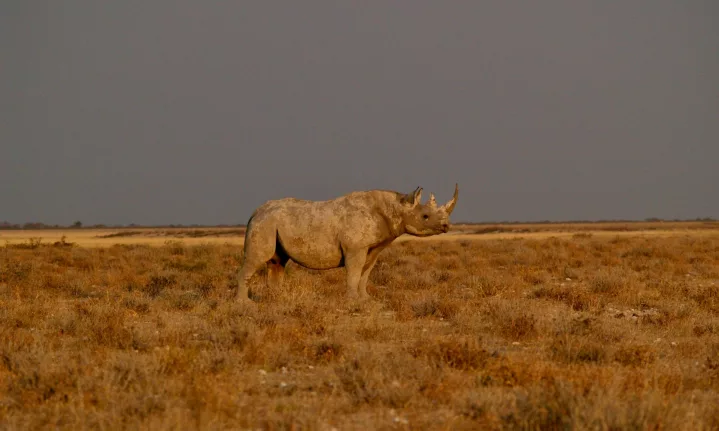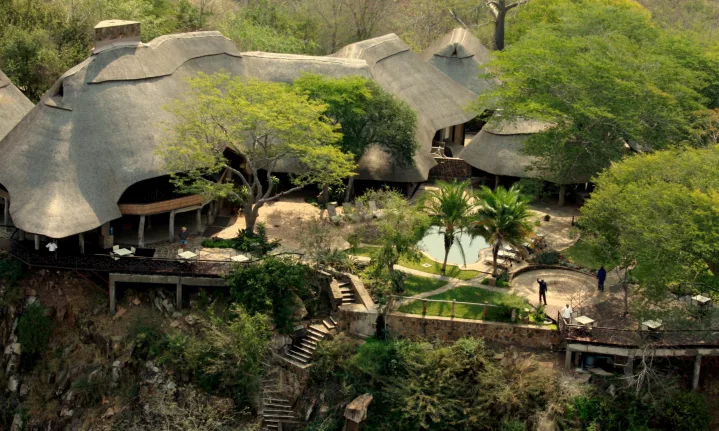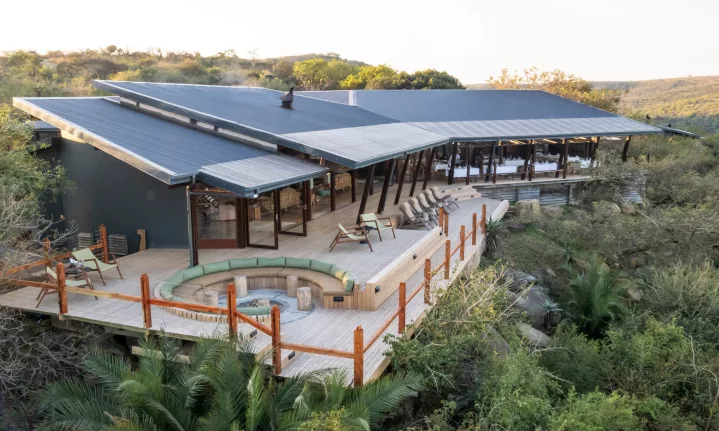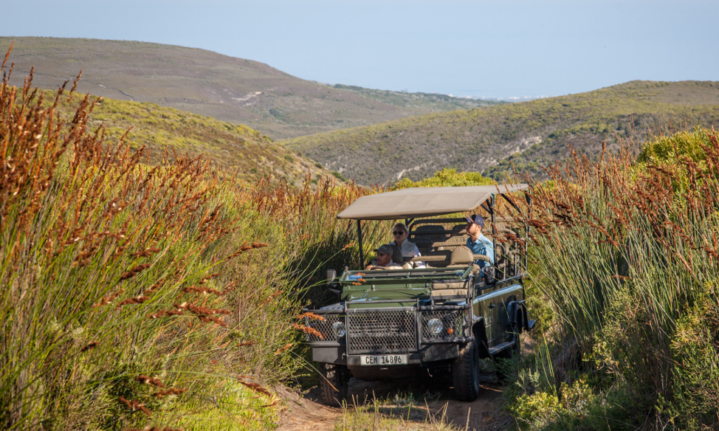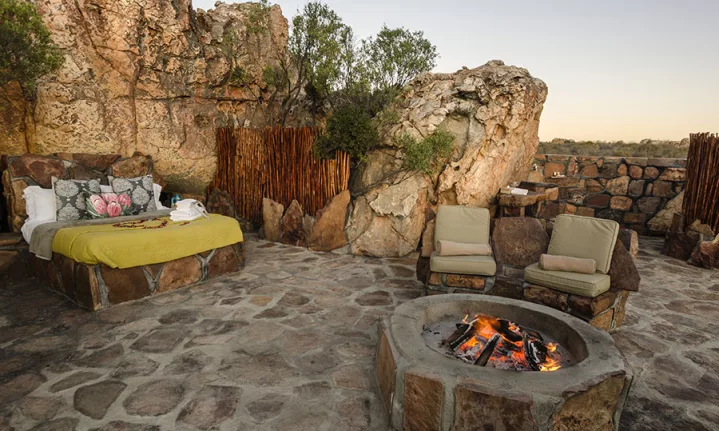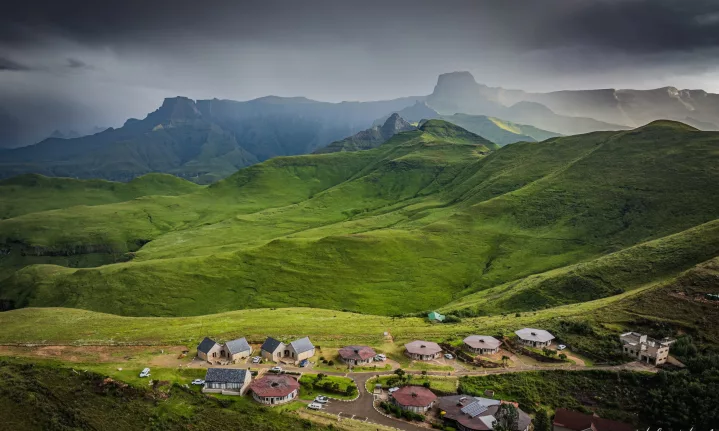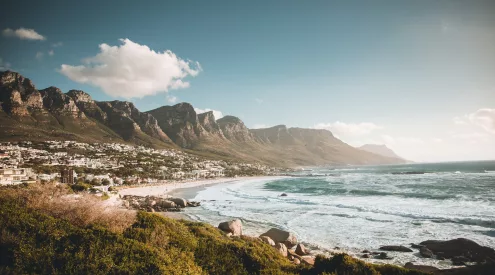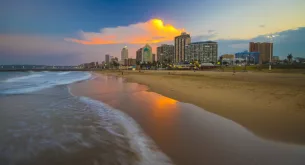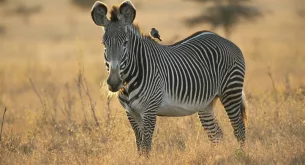As responsible travel continues to gain traction, more travellers are seeking experiences that go beyond just ticking off destinations. In Southern Africa, a growing number of eco-lodges are leading the way—places where sustainability, community upliftment, and conservation are not just buzzwords but core values.
From the fynbos-covered hills of the Western Cape to the remote wilds of Zimbabwe and Namibia, these eco-lodges prove that ethical travel can still offer unforgettable adventure, comfort, and cultural richness.
!Khwa ttu – Western Cape, South Africa
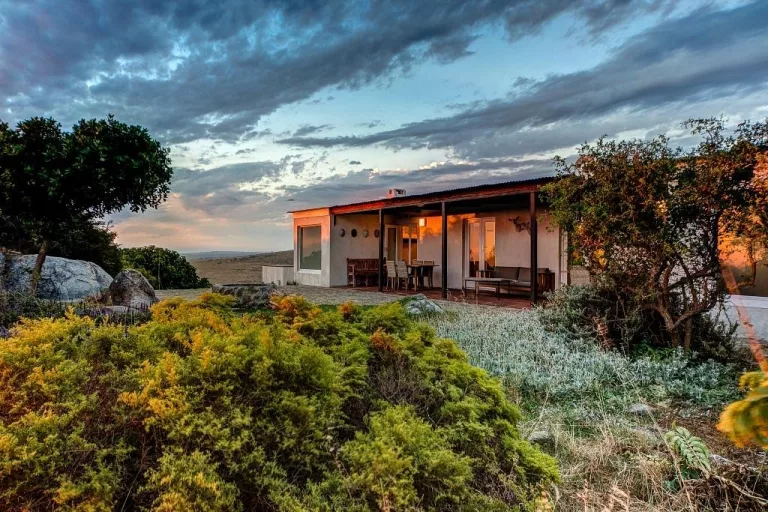
Picture/Tripadvisor
Located just an hour from Cape Town, !Khwa ttu is a San heritage centre and eco-lodge rolled into one. Guests can choose between luxury tents and sustainably built cottages, all nestled in the Indigenous fynbos landscape.
Beyond its natural setting,!Khwa ttu empowers San youth through training in hospitality, guiding, and heritage education—creating an immersive and impactful travel experience.
Bulungula Lodge – Eastern Cape, South Africa
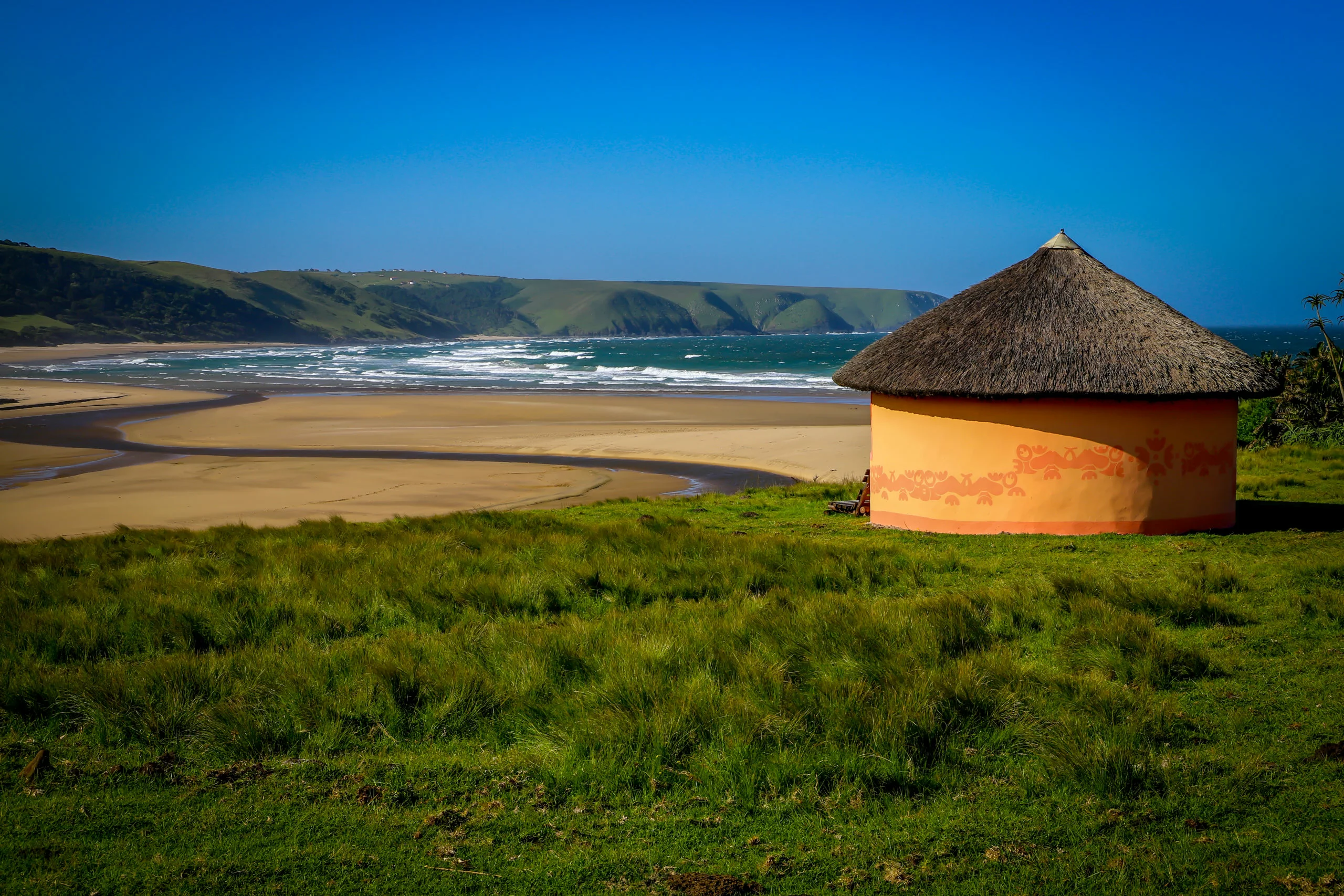
Picture/Bulungula Lodge
Completely off-grid and community-owned, Bulungula Lodge is a beacon of ethical tourism on the Wild Coast. Powered by solar energy and using composting toilets, it walks the sustainability talk.
All staff are from the local Nqileni village, and the lodge supports education, health care, and business development projects. For travellers seeking a raw, meaningful connection with local culture – this is the real deal.
Chobe Game Lodge – Botswana
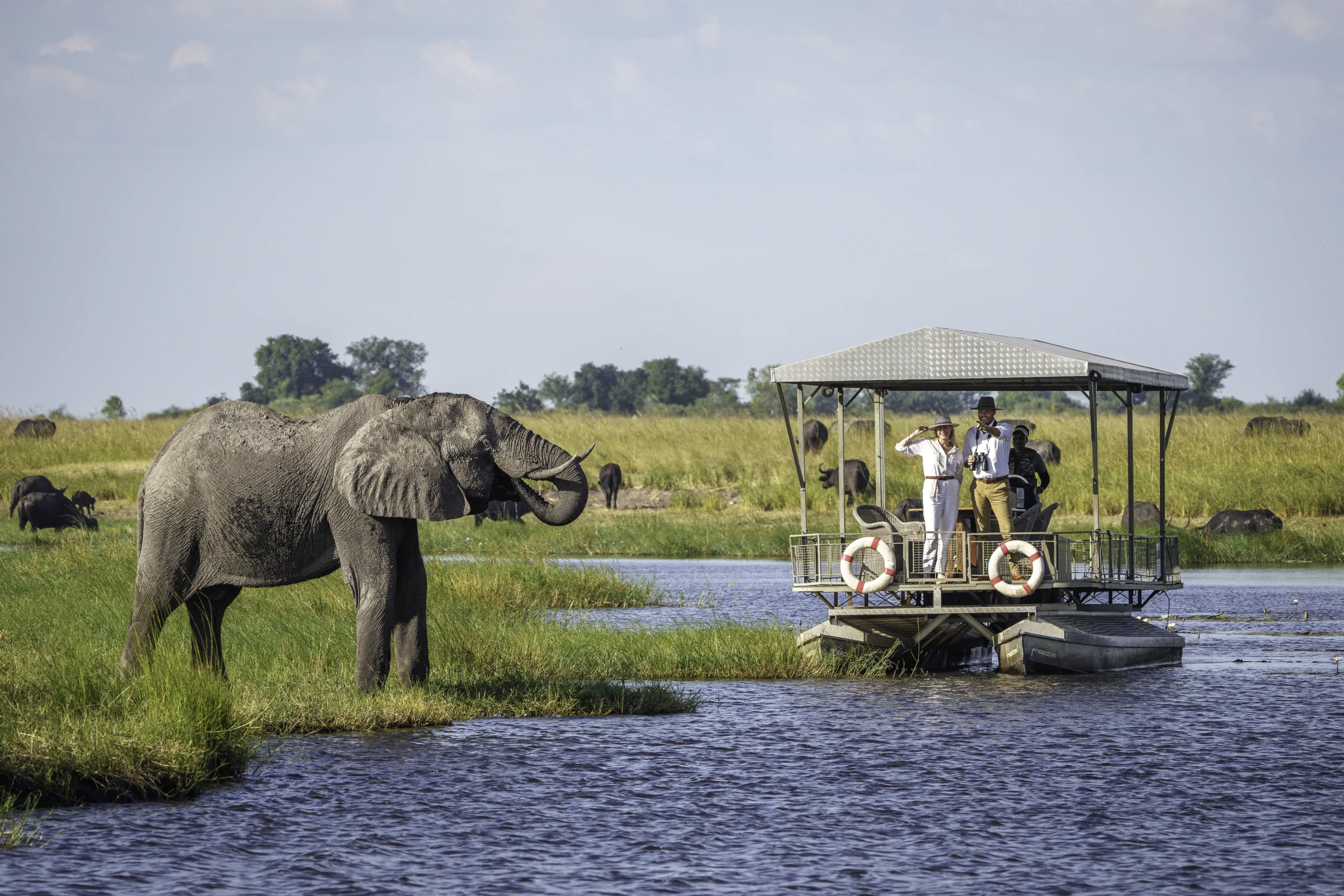
Picture/Chobe Game Lodge
Botswana’s flagship sustainable lodge, Chobe Game Lodge, is nestled along the Chobe River in the country’s famed national park. It uses solar-powered boats and electric vehicles and was the first in Africa to field an all-female guiding team.
The lodge actively supports skills training, education, and conservation through its parent company, Desert & Delta Safaris. A stay here is a vote for gender equity and greener safaris.
Desert Rhino Camp – Namibia
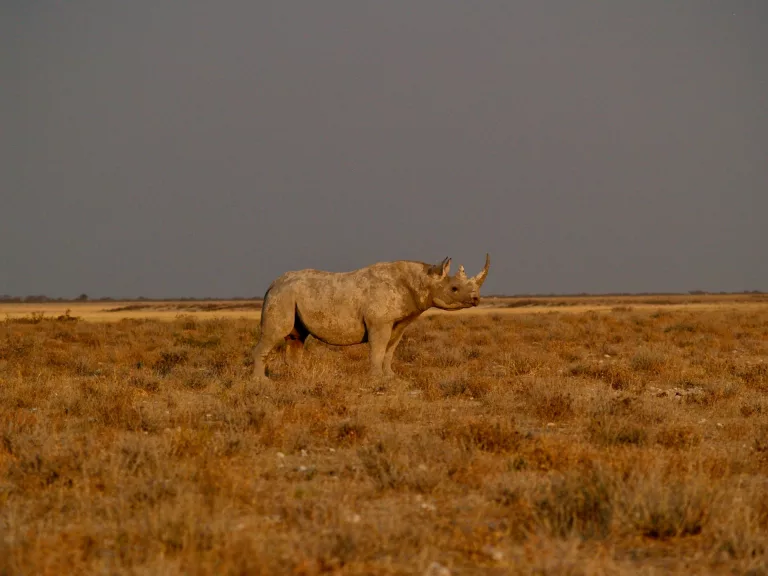
Peter Burdon/Unsplash
Set in the remote Palmwag Concession of northwest Namibia, Desert Rhino Camp offers one of Africa’s most unique conservation experiences. Operated by Wilderness Safaris in collaboration with Save the Rhino Trust, it contributes directly to protecting the desert-adapted black rhino.
The camp runs on solar power and employs community members as trackers and guides, offering an eco-conscious and culturally authentic Namibian experience.
ALSO READ: ‘I Speak for the Sea‘ – SA dive master committed to conservation
Chilo Gorge Safari Lodge – Zimbabwe
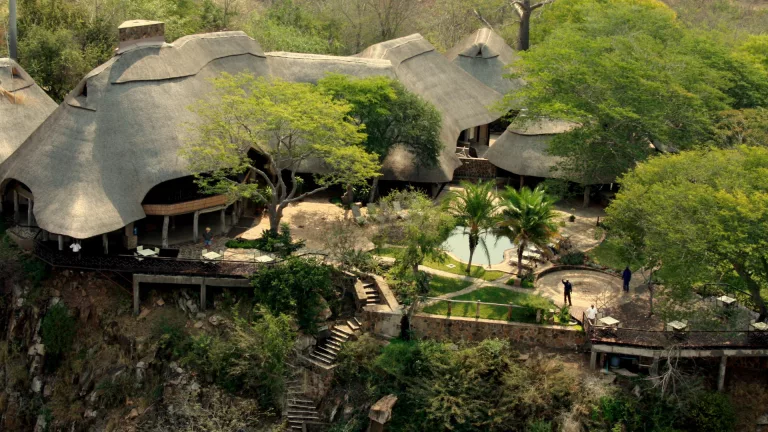
Picture/Wetu
Overlooking Gonarezhou National Park, Chilo Gorge combines luxury with deep-rooted community involvement. The lodge collaborates with the Mahenye community to support conservation initiatives and sustainable development.
Guests can experience cultural visits and guided nature walks and explore Zimbabwe’s less-visited wilderness while knowing that their presence directly supports local livelihoods and park protection.
Shamwari Private Game Reserve – Eastern Cape, South Africa
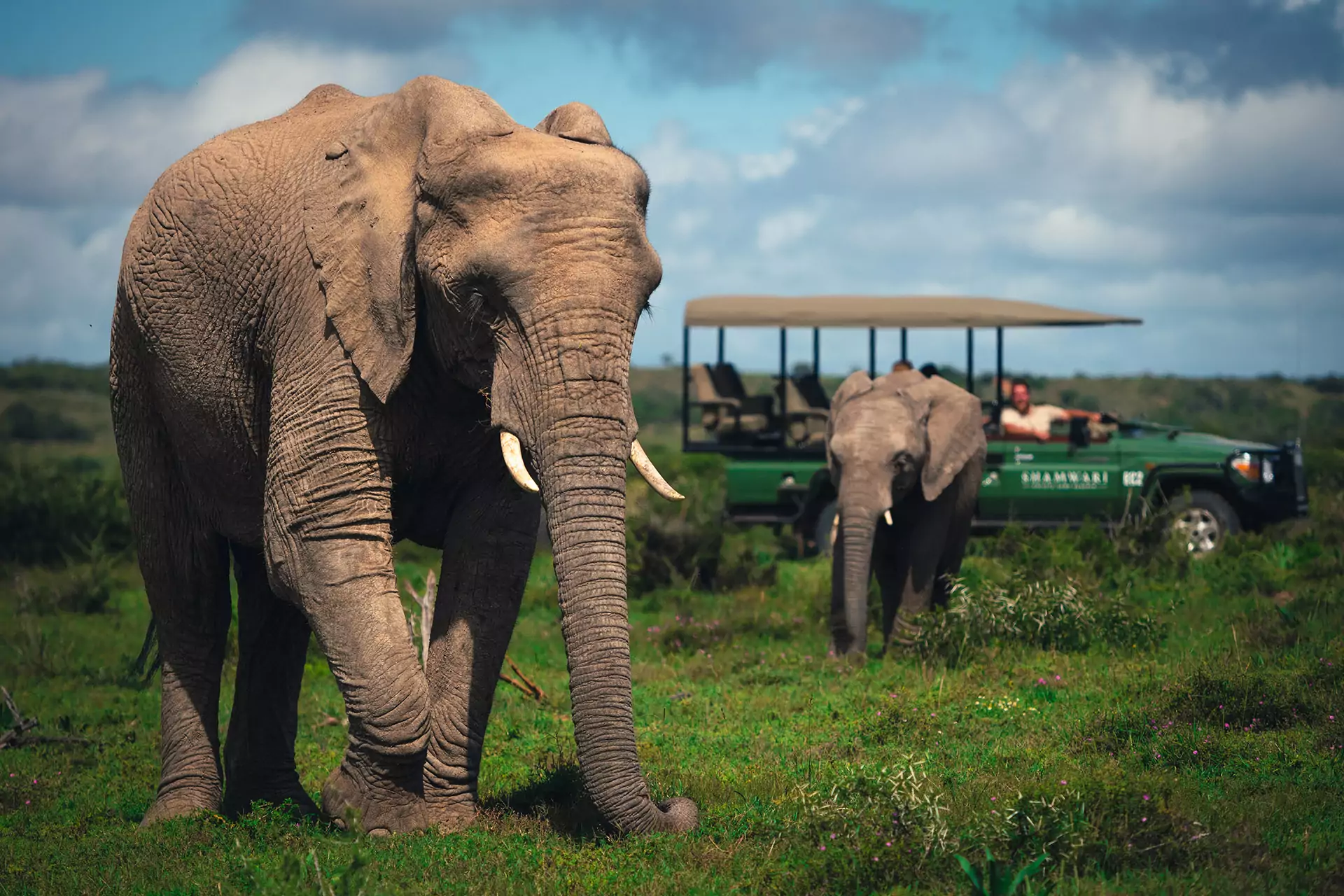
Picture/Shamwari Private Game Reserve
Shamwari offers a five-star safari experience with a strong conservation backbone. The reserve is home to wildlife rehabilitation and education centres, anti-poaching units, and extensive community outreach programmes.
Its lodges are powered with solar energy and built using eco-conscious materials, while staff development and rural education projects ensure that neighbouring communities benefit from tourism.
Tswalu Kalahari – Northern Cape, South Africa
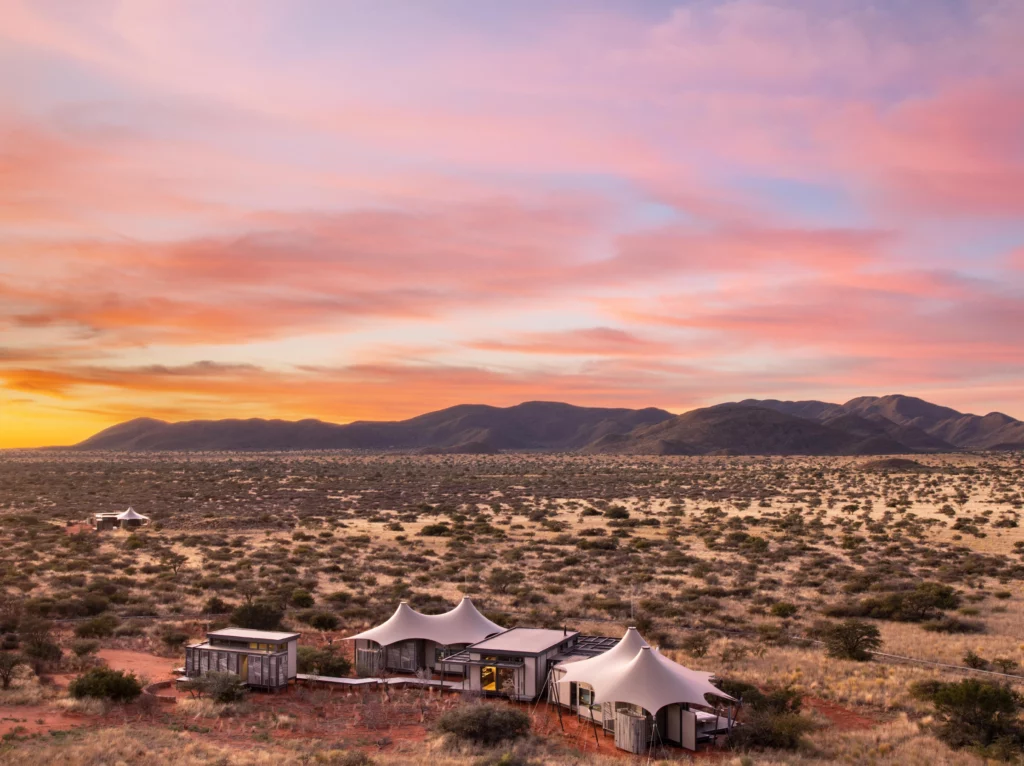
Picture/Tswalu
As South Africa’s largest private game reserve, Tswalu limits guest numbers to reduce its ecological footprint. The lodge is powered by solar energy and supports crucial scientific research on arid-zone ecology.
Tswalu also backs healthcare and education projects in local communities, showing that even luxury tourism can contribute meaningfully to both people and the planet.
Rhino Ridge Safari Lodge – KwaZulu-Natal, South Africa
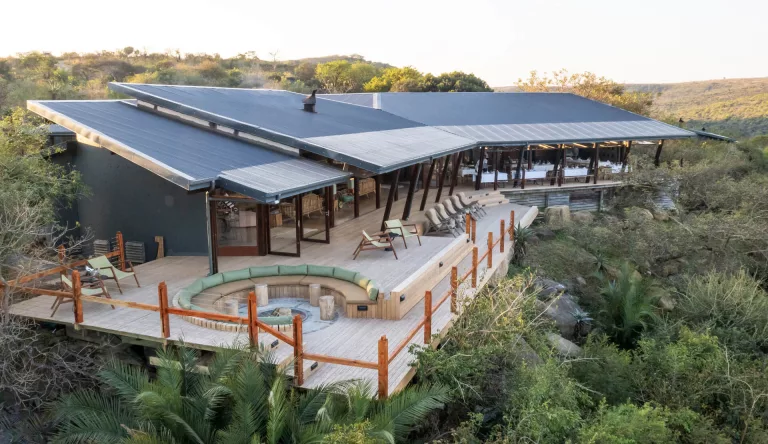
Picture/Rhino Ridge
This Big Five safari lodge is the first private facility within the Hluhluwe–iMfolozi Park. Jointly owned with the local Mpembeni community, Rhino Ridge channels profits into housing, education, and job creation.
Its green features include a hybrid solar system, water conservation, and a strong no-plastic policy, making it one of South Africa’s most sustainable safari options.
Grootbos Private Nature Reserve – Western Cape, South Africa
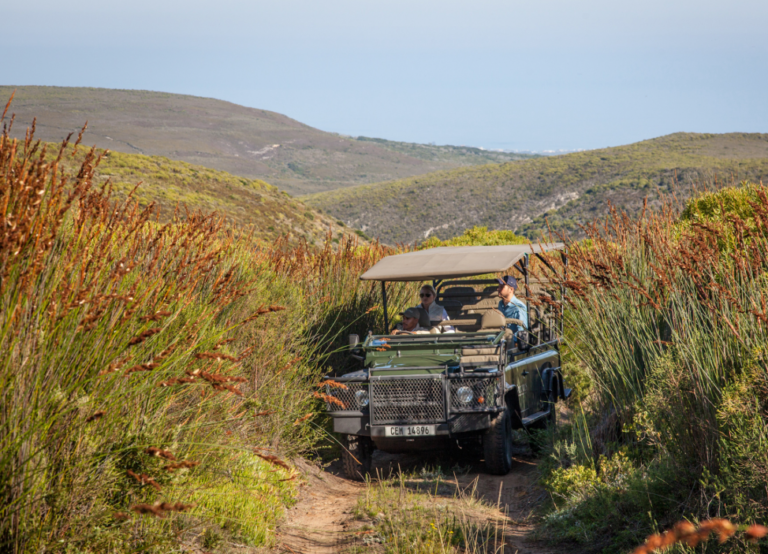
Picture/Grootbos
Globally recognized as a carbon-negative destination, Grootbos is dedicated to conserving the Cape Floral Kingdom. Visitors enjoy botanical safaris, coastal hikes, and marine tours in one of South Africa’s most biodiverse areas.
The Grootbos Foundation trains young people in agriculture and hospitality and supports eco-enterprises that create long-term change in surrounding communities.
Kagga Kamma Nature Reserve – Western Cape, South Africa
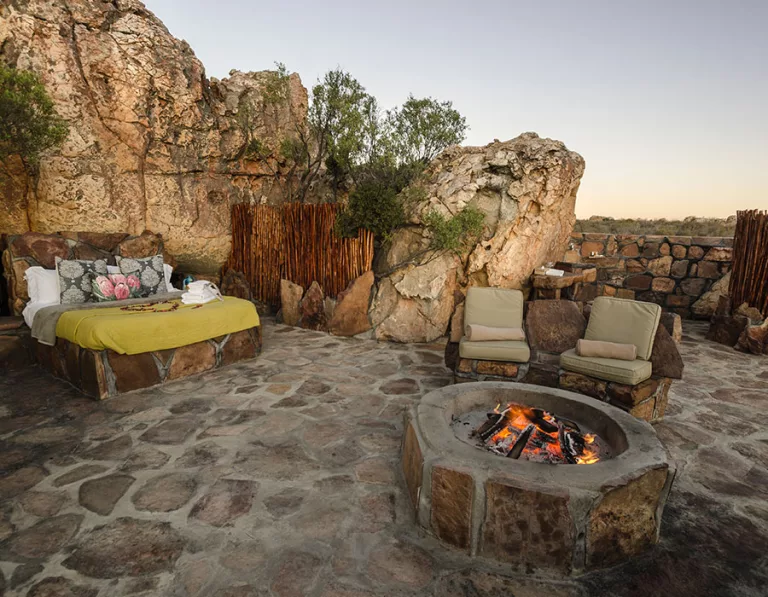
Picture/Kagga Kamma
In the otherworldly Cederberg region, Kagga Kamma offers eco-friendly cave suites and stargazing huts designed to have minimal impact on the land. The lodge relies heavily on solar energy and practices waste reduction and water-saving.
Its staff is drawn from local communities, and the lodge is a natural and cultural sanctuary supporting indigenous heritage.
Singita Lebombo Lodge – Mpumalanga, South Africa

Picture/Singita
Perched above the N’wanetsi River in Kruger National Park, Singita Lebombo is a high-design, high-impact eco-lodge. It uses solar energy and responsibly sourced building materials and recycles extensively.
The lodge funds the Singita Community Culinary School and supports local farmers and youth training programmes, proving that luxury and local upliftment are not mutually exclusive.
Umlani Bushcamp – Limpopo, South Africa
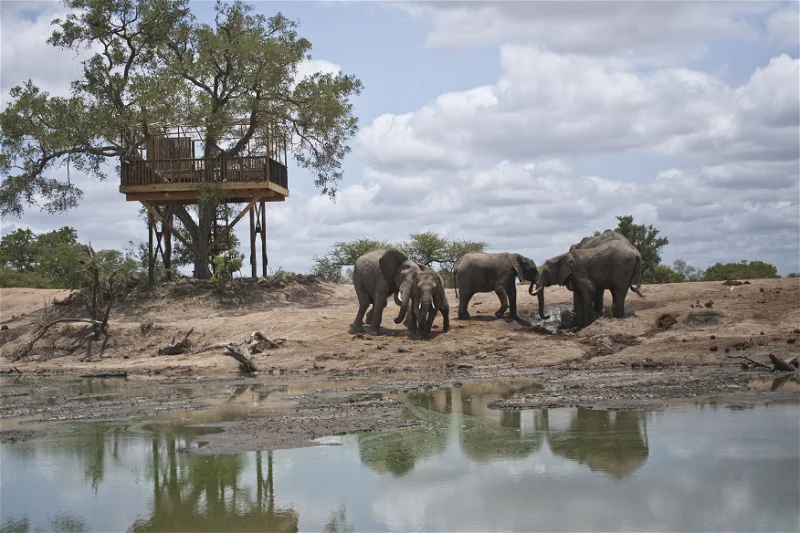
Picture/Umlani
Fair Trade Tourism certified and completely off-grid, Umlani Bushcamp offers an authentic safari in the Timbavati Reserve. Built using local reed and thatch, it has a rustic charm rooted in low-impact living.
The lodge also partners with conservation groups and invests in local schools and skills development, ensuring tourism dollars are channelled into meaningful change.
Witsieshoek Mountain Lodge – Free State, South Africa
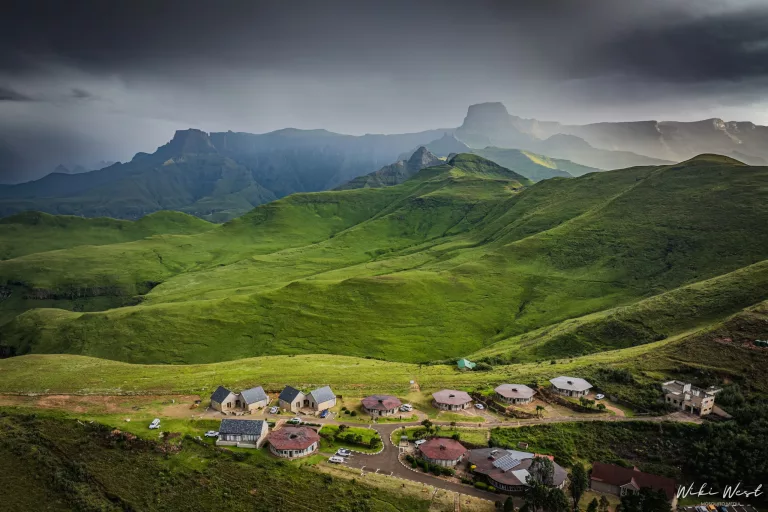
Picture/Witsieshoek
Owned by the Batlokoa community, this lodge is nestled in the Maloti Drakensberg mountains and offers hikers front-row access to the Sentinel Peak trail and Tugela Falls.
Certified by Fair Trade Tourism, Witsieshoek funds local job training and infrastructure while preserving the stunning natural landscape that draws adventurers year-round.
Choose travel that gives back
When you stay at any of these eco-lodges in Southern Africa, your trip becomes more than just a getaway—it becomes part of a movement. A movement toward sustainable travel, community tourism, and wildlife conservation.
Whether you’re watching rhinos in Namibia, hiking Drakensberg trails, or enjoying sundowners in the Kalahari, you can do it all while supporting people and protecting places that matter.
Follow us on social media for more travel news, inspiration, and guides. You can also tag us to be featured.
TikTok | Instagram | Facebook | Twitter
ALSO READ: Embracing township tourism in South Africa

